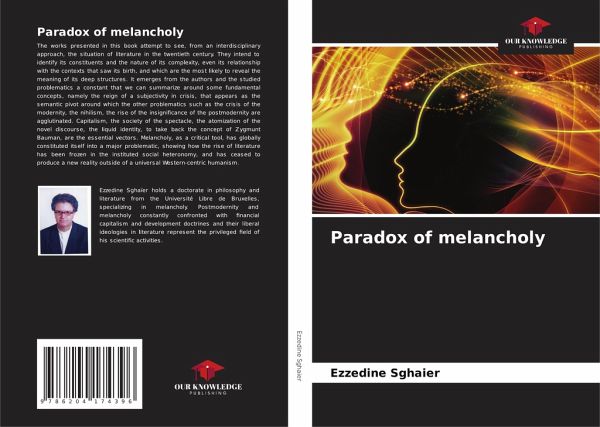
Paradox of melancholy
Versandkostenfrei!
Versandfertig in 6-10 Tagen
55,99 €
inkl. MwSt.

PAYBACK Punkte
28 °P sammeln!
The works presented in this book attempt to see, from an interdisciplinary approach, the situation of literature in the twentieth century. They intend to identify its constituents and the nature of its complexity, even its relationship with the contexts that saw its birth, and which are the most likely to reveal the meaning of its deep structures. It emerges from the authors and the studied problematics a constant that we can summarize around some fundamental concepts, namely the reign of a subjectivity in crisis, that appears as the semantic pivot around which the other problematics such as t...
The works presented in this book attempt to see, from an interdisciplinary approach, the situation of literature in the twentieth century. They intend to identify its constituents and the nature of its complexity, even its relationship with the contexts that saw its birth, and which are the most likely to reveal the meaning of its deep structures. It emerges from the authors and the studied problematics a constant that we can summarize around some fundamental concepts, namely the reign of a subjectivity in crisis, that appears as the semantic pivot around which the other problematics such as the crisis of the modernity, the nihilism, the rise of the insignificance of the postmodernity are agglutinated. Capitalism, the society of the spectacle, the atomization of the novel discourse, the liquid identity, to take back the concept of Zygmunt Bauman, are the essential vectors. Melancholy, as a critical tool, has globally constituted itself into a major problematic, showing how the rise of literature has been frozen in the instituted social heteronomy, and has ceased to produce a new reality outside of a universal Western-centric humanism.












